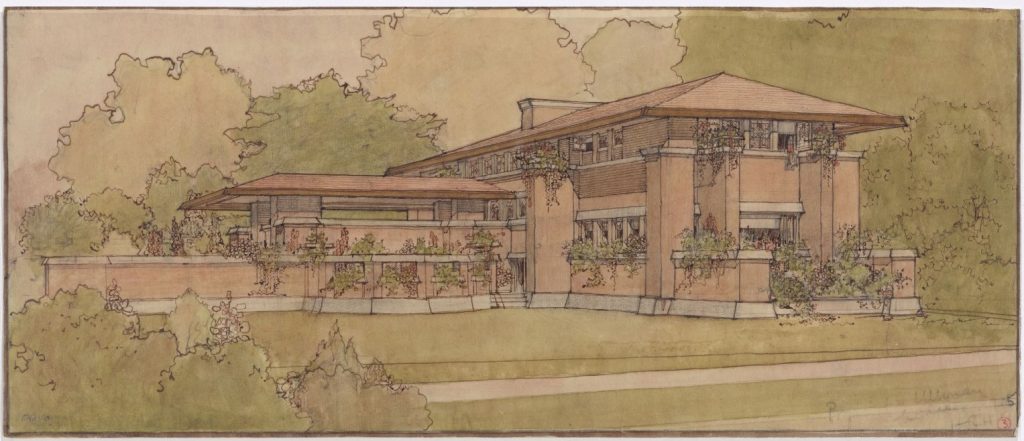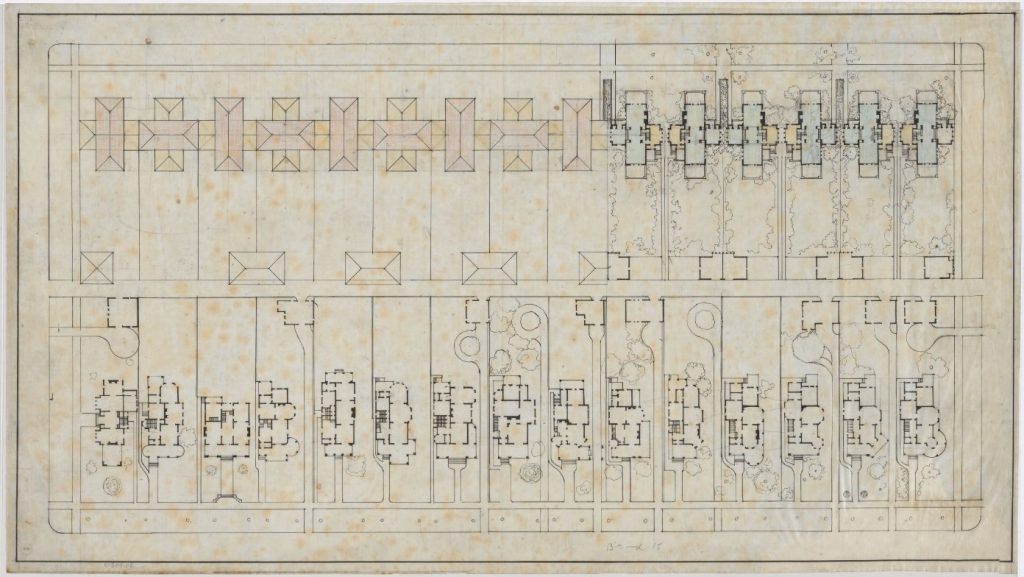Avery Architectural & Fine Arts Library is pleased to announce the launch of a new online resource, the Frank Lloyd Wright (FLW) Digital Archive. This resource is the product of an ongoing, three-year initiative at Columbia University Libraries to digitize and make available more than 15,000 residential drawings from the Frank Lloyd Wright archival collections.
The FLW Digital Archive supports the Libraries’ commitment to make collections as accessible as possible for in-person and online use. It facilitates global access to high-resolution images for use in teaching, research, and historic preservation worldwide. The archive launches with over 10,000 high-resolution images and will continue to expand as drawings are digitized, with an estimated completion date of spring 2026.
“We are immensely proud to make these digitized collections broadly available for public and scholarly use,” said Teresa Harris, Director of Avery Architectural & Fine Arts Library. “The residential projects were at the very heart of Frank Lloyd Wright’s practice as Wright developed many of the enduring themes of his work in the context of designs for houses. These themes including the meaning of organic architecture, the importance of place and materials, the reliance on hands-on learning, and an emphasis on affordable building techniques continue to resonate with researchers and enthusiasts alike. Public access to these collections honors the spirit of openness and iteration in Wright’s work.”

Project 0411: Herbert Ullman house (Oak Park, Illinois). Unbuilt Project. Presentation drawing: Exterior view. Frank Lloyd Wright, 1904. [0411.001]

Project [0309.006]
Avery Library holds unparalleled collections of drawings, photographs, papers, and audio-visual material from renowned American architect Frank Lloyd Wright. His archives are frequently consulted by architects, researchers, students, and homeowners around the world. In addition to democratizing access to these significant collections, the FLW Digital Archive was developed to promote visibility and research into some of the lesser-known aspects of the collections.
For example, the project sheds light on the many women who were instrumental in making design decisions for their homes, but were previously absent from the residences’ public descriptions. Archival research and enhanced item-level cataloging now allow each residence to be searchable by all known client names, rather than only one head-of-household. As she is no longer veiled under the moniker of “Mrs. Arthur Miller,” users will be able to search by Marilyn Monroe’s own name to discover the former couple’s iconic unbuilt residence, replete with expansive entertaining areas and dedicated space for costume storage.
The archive will also soon be available on Columbia Libraries’ website and will continue to grow as already-digitized materials outside of this project are added. Avery Library also aspires to digitize and make publicly available further Frank Lloyd Wright materials including non-residential drawings, photographs and correspondence.